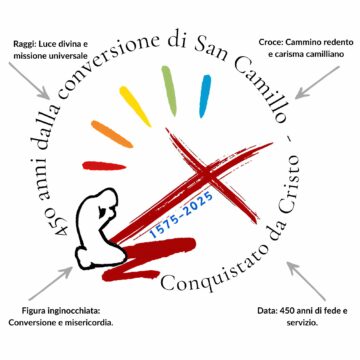 By Giuseppe Cinà, in Camillianum – books of camillian history and spirituality – n. 6, 2002, pp.495-512
By Giuseppe Cinà, in Camillianum – books of camillian history and spirituality – n. 6, 2002, pp.495-512
The gospels present the Christ-physician as one of the modalities through which he carried out his mission of “service to life” (cf. Jn 10,10). In this theological meditation, we want to reflect on the attitude of meekness and of love as expression and realization of that service: what is the meaning of this connection between “meekness/love” and service to life? It means that the meek and loving attitude of Jesus Christ attributed to him by the gospels, is life which allows his salvific power to be effective. It is not simply that the other is healed by the attitude in itself, but that way of feeling of Jesus – his “sentiments” of which Paul speaks in the hymn of the letter to the Philippians (2,5-9) – expresses and transmits his salvific virtue.
To introduce ourselves to the theme, it can be useful to ask ourselves what our first reaction to the affirmation expressed in the title is. Do we also feel that really the attitudes of meekness and love are vehicles of “force” and vigour? Or rather, according to our spontaneous and natural feeling, the strength resides in a robust and solid character, not easily vulnerable, therefore also endowed with aggression and grit, as well as the capacity of emotional detachment from reality, which is not conditioned by the pitiful and miserable situations in which the other is involved?
It true, nevertheless, that a more attentive reflection helps to overcome this sense of ambivalence and it becomes quite clear that the authentic force assumes both love and strength or energy, requires meekness and patience on the one hand, but also power and vitality on the other, therefore, sweetness and combative ability.
The reflection I propose is placed in the context of an analysis of “violent” behaviours in confrontation with life, practiced more when human life is in the conditions of greater fragility and vulnerability, such as the state of unborn child, of the infants, of the elderly or the demented. What makes strangely these behaviours strident is that this is done by those who by profession are called to carry out a task of service and promotion of life. This behaviour is not just immoral, but also, echoing biblical vocabulary, foolish and inconsistent, because it is a behaviour that in effect diminishes the humanum in us, and which makes the one who adopts it less “person”, if it is permissible for me to say so.
Let us place ourselves, therefore, immediately in the context of a Christian vision of man, holding firm what Vatican Council II has reminded: “only in the mystery of the incarnate Word does the mystery of man take on light” (GS 22). In fact, Jesus Christ is the Saviour of man not only through the work he does, but already is as much he is “perfect man”. His sentiments and his way of action are not just something proposed for our mediation, letting each one choose to imitate him or not: they are actually the only possibility offered to man to become fully himself. Man, whether he knows it or not, has been created “in Christ” and “for Christ”. His destiny depends on whether this reality is welcomed or not.
It will be crucial to understand the motivation that the Gospels see at the origin of that attitude of the young teacher of Galilee, recognized by them as their Messiah and Saviour. Let us then ask ourselves why Jesus himself explicitly demands from the disciple that “he learns from him” to be “meek and humble of heart” so that he may “find rest”, serenity and inner strength. But it will also be necessary to understand why the attitude of love and humility is related to the “healing energy” that comes from Christ.











Camillians on Facebook
Camillians on Twitter
Camillians on Instagram